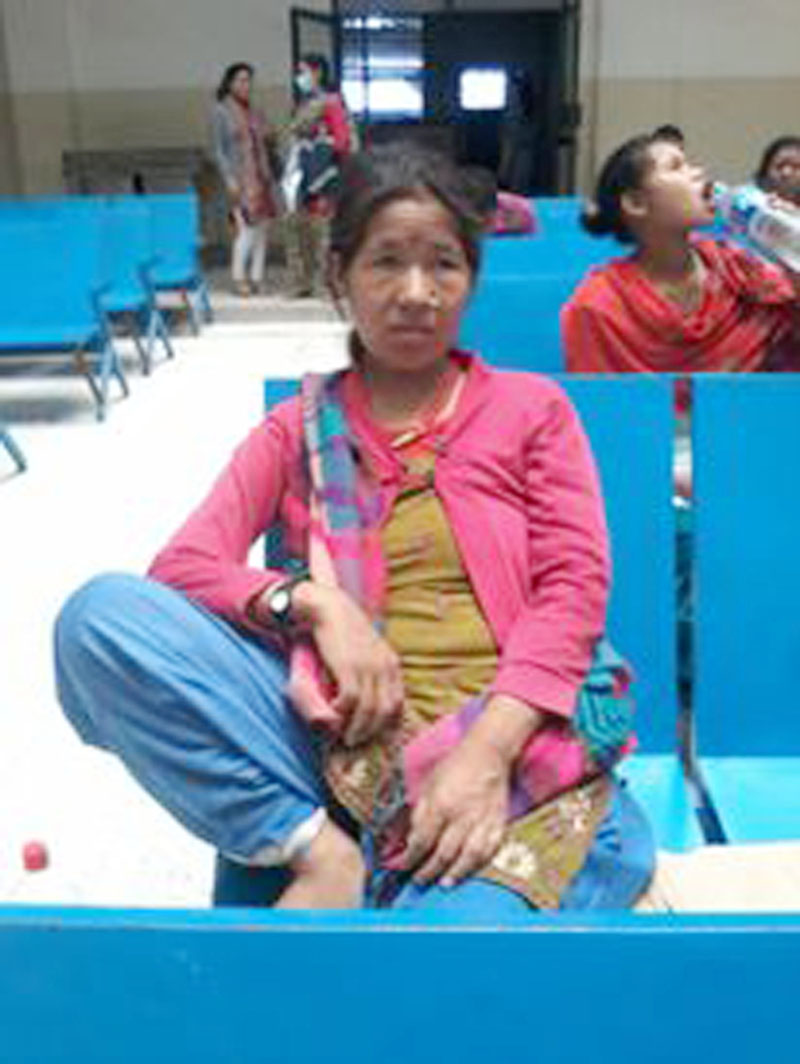Indebted kidney patients demand free dialysis pronto
KATHMANDU: With a feeble body, wrinkles on her forehead and a little hope for longer life, a kidney patient Binita Oli (31) of Ota VDC in Rolpa, a hilly district in mid-western Nepal, is waiting for her turn to undergo hemodialysis at the Bhaktapur-based Human Organ Transplant Center. This is now her routine life as she needs to undergo the dialysis twice or thrice a week.
Just two years ago, life for Oli, however, was simple and easy-going as she was living apparently a healthy life.
But, all of a sudden she started suffering from headache, vomiting, muscle swelling and backache. Her husband took her to India for better treatment there with the hope for early diagnosis, but in vain.
Her toughest days began, as she described, after she was diagnosed with kidney failure 10 months ago in Nepalgunj and has been under regular dialysis and medication since then.
Despite carrying a huge burden of loan, Oli is seeking a longer life for the sake of her children. Now, the Oli couple live in a rented room near the Centre so as to visit the facility on time. The Oli family from a rural village has already taken a loan of Rs 1.5 million for the treatment.
She feels pain in her heart when she thinks about the future of her family, mainly of her two daughters. "Life has become painful for me. Neither can I have a healthy life nor let myself die," said the patient.
Oli is just an example of the many kidney patients seeking a longer life with the help of medication and also carrying a huge burden of loan.
Just to undergo the dialysis to keep the failed kidneys running, one has to pay Rs 3,000 including medication per dialysis. And this has to be done twice or thrice a week.
Hence, the monthly expenses would go up to Rs. 40,000 a month, and it could exceed if the patient required extra medication for any additional problems seen during the dialysis and post-dialysis period.
The amount is not affordable for most of the people of a least developed country like Nepal, where a considerable part of life is spent struggling for just two square meals a day.
Meanwhile, the Bhaktapur-based Center, now in its fourth year of establishment, has been presently providing regular dialysis service to around 350 patients every week. Additional 24 hours emergency service is also available.
Kidney patients receiving medical services at the Center and their kin had celebrated the moment the government announced free dialysis services on May 12, with a huge sigh of relief and joy. This was what they had long been clamouring for, but were given cold shoulder from the governments so far.
"We demand the implementation of free dialysis as soon as possible," a patient there says. Presently, kidney patients are getting free dialysis, a life-support treatment, just for two years.
When asked whether she is aware of the government decision made in favour of patients like her, Oli said the news brought a smile to face, probably reflecting her hope for a longer life after learning from other patients visiting the Center the following day.
But, Administrative Officer at the Center, Harihar Pokharel, said the facility was awaiting directives from the higher authorities to execute the government decision on free dialysis.






